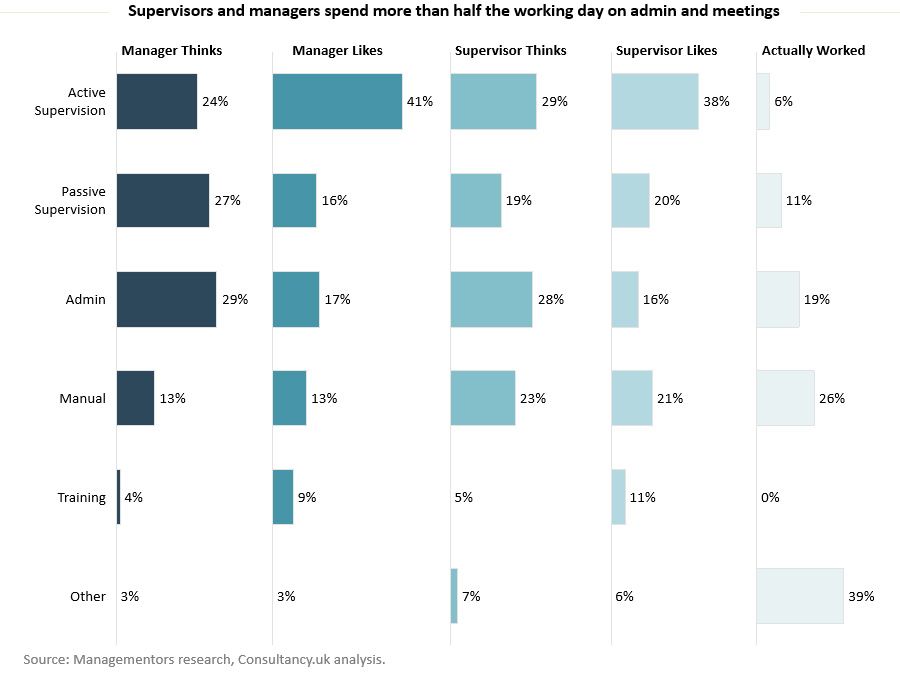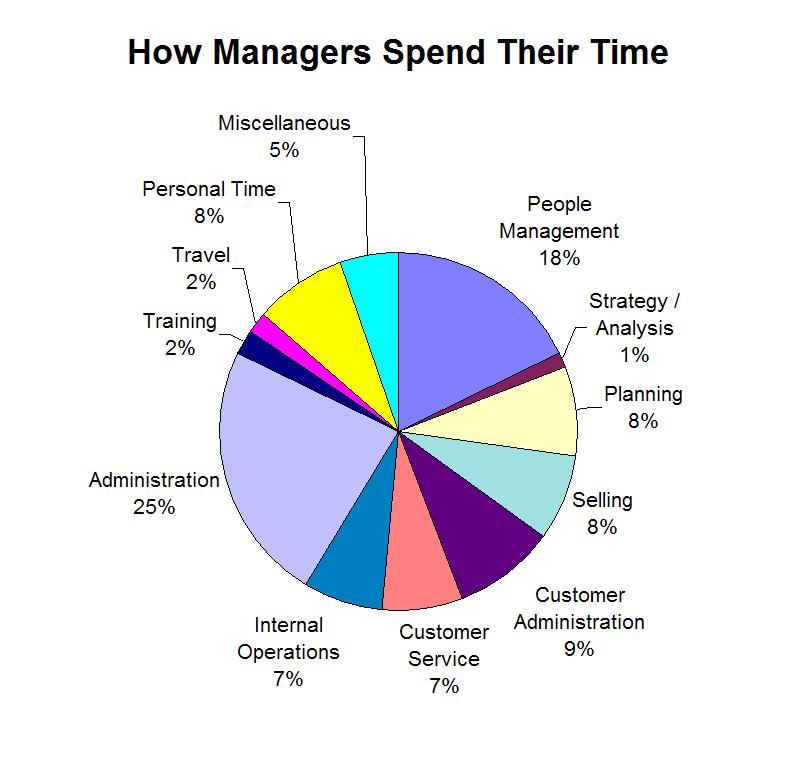
Hey busy professionals! Have you ever wondered where your time goes every day? With all the demands of being a supervisor, it’s no surprise that your schedule is full. But have you thought about how much time you actually spend on managing?
In this article, we’ll delve into the world of supervisors and their busy schedules. We’ll explore the concept of supervisors spending most of their time on management and discuss the benefits of understanding this in your professional life.
If you’re ready to unravel the mystery of where your time goes and unlock insights to manage it more efficiently, this article is for you. We’re about to embark on a journey that will revolutionize the way you approach time management as a supervisor!
Overview
Supervisors are crucial in organizations. They oversee work and ensure efficiency. They spend time planning, organizing, and controlling various aspects of the work. One of their primary responsibilities is to set objectives for their teams, identify goals, and develop strategies. This involves analyzing resources, understanding requirements, and creating a roadmap.
Supervisors also organize and allocate resources, assign tasks, and facilitate effective communication and coordination with different departments and individuals. Additionally, they monitor work progress, track performance indicators, and take corrective actions to meet deadlines, maintain quality standards, and address any issues or obstacles promptly.
Supervisors play a crucial role in organizations and spend most of their time on management. They plan objectives, organize resources, and control work progress to ensure the success and efficiency of the organization.
Key Features
Supervisors have a critical role in organizations, overseeing employees and ensuring efficient task completion. To effectively manage teams, supervisors need key features. Here are some:
Key Features Description
Leadership Supervisors require strong leadership skills to guide and motivate teams in achieving organizational goals, inspiring confidence and fostering a positive work culture.
Communication Supervisors must possess effective communication skills to convey information clearly and professionally to team members, promoting collaboration and understanding.
Decision-making Supervisors need to display good decision-making skills, gathering information, analyzing options, and making informed choices that benefit the team and organization.
Problem-solving Supervisors should demonstrate strong problem-solving skills to address and resolve issues that arise within the team. Identifying problems, analyzing root causes, and implementing effective solutions contribute to team success.
Time management Supervisors must exhibit proficient time management skills, prioritizing tasks, organizing workloads, and ensuring deadlines are met. This skill set supports optimal productivity and task completion.
Adaptability Supervisors must be adaptable, effectively responding to changing circumstances, industry shifts, and organizational needs. Flexibility and open-mindedness help keep team and organizational objectives aligned.
By possessing these key features, supervisors can excel in their role and contribute to the overall success of their organization.
Effective communication is essential for supervisors. They should clearly convey tasks, expectations, and feedback to their team members. Additionally, they should listen to understand their employees’ needs and concerns.
Supervisors must have strong organizational skills to manage tasks, deadlines, and resources efficiently. They should prioritize work effectively and allocate resources to maximize productivity.
Supervisors should possess excellent problem-solving skills to identify and address issues. They should analyze situations, make sound decisions, and implement effective solutions to resolve conflicts and challenges.
Supervisors should be adept at managing time and prioritizing tasks. They should be able to meet deadlines and handle multiple responsibilities efficiently.
Effective time management is crucial for supervisors to meet deadlines. They should be capable of planning and organizing their own time, as well as their team members’, to optimize productivity.
Supervisors must collaborate and work effectively with team members. They should foster teamwork, open communication, and cooperation to achieve common goals.
Supervisors need to be adaptable and flexible. They should adjust their management style and strategies based on team needs and changing dynamics.
Practical Tips

Supervisors play a critical role in managing teams and ensuring organizational smoothness. To effectively carry out this function, supervisors can consider the following practical tips:
1. Prioritize tasks: With multiple responsibilities, supervisors must prioritize to avoid missing anything. This can be done through to-do lists or project management tools.
2. Delegate tasks: Supervisors should not hesitate to delegate to promote workload distribution and foster employee growth. Delegation should take into account team members’ strengths and skills.
Clear communication is vital to effective management. Supervisors should clearly communicate expectations, goals, and deadlines to their team members. They should encourage open and honest communication and address any questions or concerns.
Regular feedback is crucial for the growth and development of team members. Supervisors should provide timely feedback, both positive and constructive, to help employees improve. This can be done through one-on-one meetings or performance evaluations.
5. Develop relationships: Building strong relationships with team members is essential for effective management. Supervisors should get to know their employees, understand their strengths and goals, and provide support and guidance. This boosts morale and creates a positive work environment. Supervisors can enhance their management function by prioritizing tasks, delegating effectively, communicating clearly, providing feedback, and developing strong relationships with their team members. These tips streamline responsibilities and ensure team and organizational success.
Personal Perspective: Reflecting on the Impact of Supervisors

The role of supervisors in an organization is crucial. They are responsible for managing teams, delegating tasks, and providing guidance. Without strong supervisors, the functioning of a company would be compromised. By reflecting on these insights, we can apply them to our own lives or situations.
Additionally, supervisors face challenges balancing their managerial responsibilities with their own workload. This highlights the importance of time management and prioritization. We can learn from this and apply these strategies to our own lives, whether in managing our personal responsibilities or leading a team in our professional endeavors.
Understanding the role of supervisors helps us develop empathy and appreciation for their work. Recognizing the demands and pressures they face can foster a supportive and collaborative relationship with our own supervisors, benefiting both parties and contributing to a positive work environment.
Supervisors are key players in any organization. Their management function greatly impacts team and individual success. By reflecting on these insights, we can apply them to our own lives and work towards becoming more effective in our roles. Whether as supervisors or team members, let’s strive to support and collaborate with them. Continuous improvement of our own managerial skills is vital. Together, we can create a harmonious and successful future.
